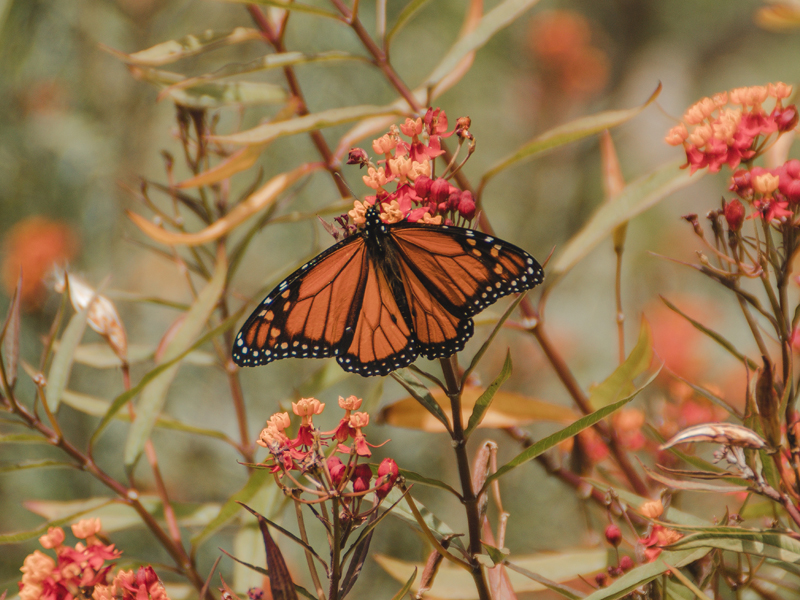Lack of rain and hotter weather lead to record low butterfly season
The monarch butterfly population is in decline. Due to their magnificent migration, almost all US monarchs are in a few locations during the winter, allowing biologists to count and estimate the population. The same cannot be said for other butterflies. Instead, researchers must rely on smaller scale data collections.
In the Phoenix area, two groups collect data about butterflies each year. They walk the same routes every time and look for butterflies. This is referred to as a transect and is meant to cover areas representative of the local ecosystem. Over many years, this data can show patterns of how butterflies are doing in an area. The information is contributed to a national dataset organized by the North American Butterfly Association. The Central Arizona Butterfly Association (CAZBA) has collected data every fall for 14 years, counting butterflies in areas around Superior and Boyce Thompson Arboretum. The Parsons Field Institute at the McDowell Sonoran Conservancy (MSC) collects data on the McDowell Sonoran Preserve in Scottsdale biannually for the past seven years. Each count has multiple teams, each led by a butterfly expert. The Garden’s own Dr. Kim Pegram, program director for pollinator conservation and research, has served as an expert on these counts for many years.
The reports from this September were grim. Simply, they were the lowest they have been in the history of these counts. Around Superior, CAZBA volunteer counters in three groups saw a total of 32 butterfly individuals of 15 species. Previously, the lowest was 144 butterfly individuals and 24 species.
MSC counts were similar. With six groups in different areas throughout the Preserve, they only counted a total of 15 butterfly individuals of 4 species. Multiple groups spent hours in the Preserve without seeing any butterflies. This has never happened in previous years.
While bleak, these numbers were not wholly unexpected by the scientists and volunteers. Why? Because butterflies depend on plants. With the extreme lack of rain and hotter than average temperatures, the desert ecosystem is suffering. Plants are dry, not providing enough tender leaves for caterpillars to eat. In their stressed state, many desert shrubs are not producing blooms that adult butterflies depend on for nectar. Butterflies themselves will also respond to extreme temperatures. There is hope that winter rains will revive our dormant or struggling desert plants and the butterfly populations will bounce back.
The Garden is thankful for all the work by local biologists, volunteers, CAZBA and MSC because the work they do make these long- term datasets possible.
This gloomy September was followed by a brightened October and November. If you have visited the Garden, you may have seen a welcome visitor: the monarch butterfly. Monarchs have been making their presence known since early October, gliding along the trees and trails. The females have been laying eggs all over the milkweeds planted in the Garden or being grown for Great Milkweed Grow Out, the Garden’s community initiative. Garden staff has even heard about some travelling home on milkweeds sold at our Fall Plant Sale. They are a lovely site to see in our Garden oasis.
If you want to help butterflies and pollinators, plant native nectar plants and host plants in your home garden. Check out dbg.org/milkweed for more information. You can also support these data collection efforts by submitting your own observations on the iNaturalist app.
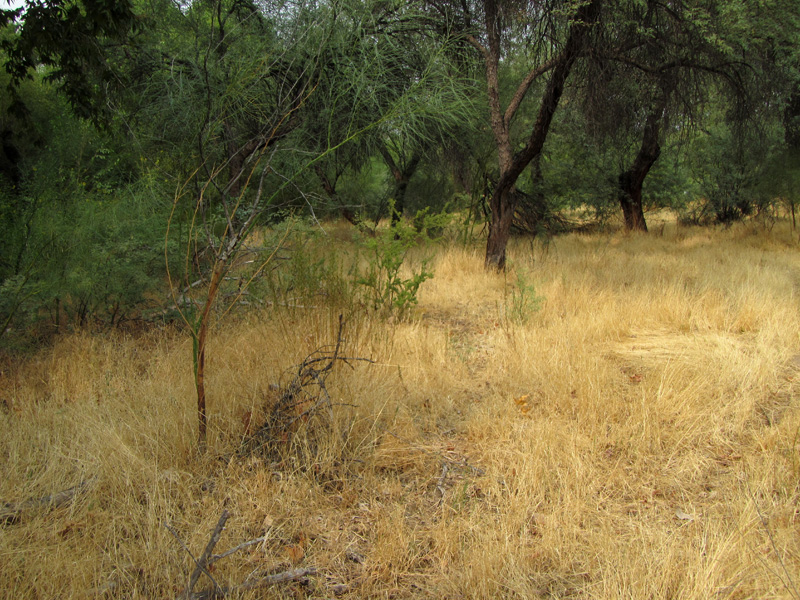
Above Arnett Creek by Liz Makings
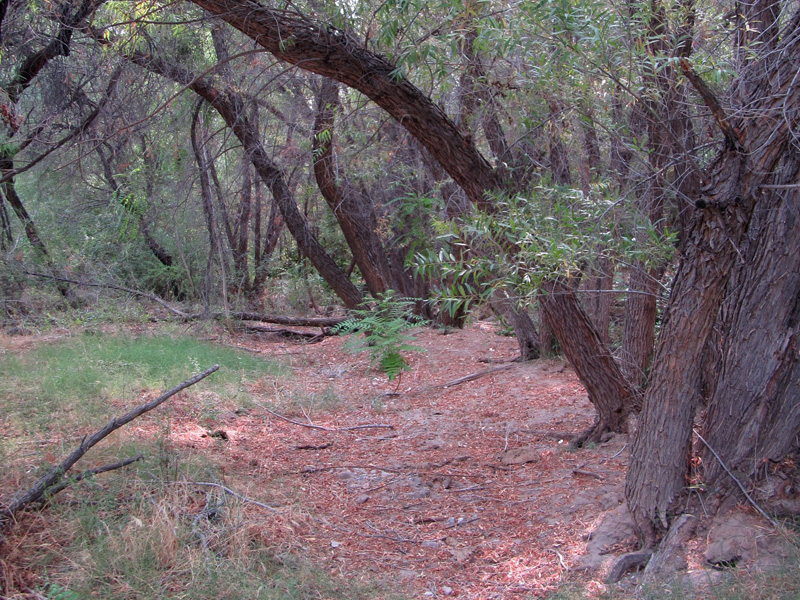
Arnett Creek by Liz Makings
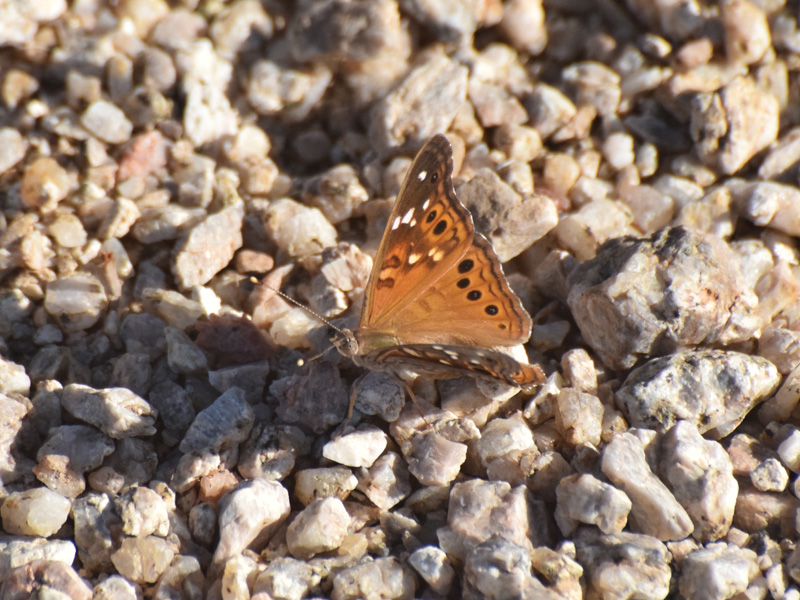
Empress Leilia by Scott Sprague
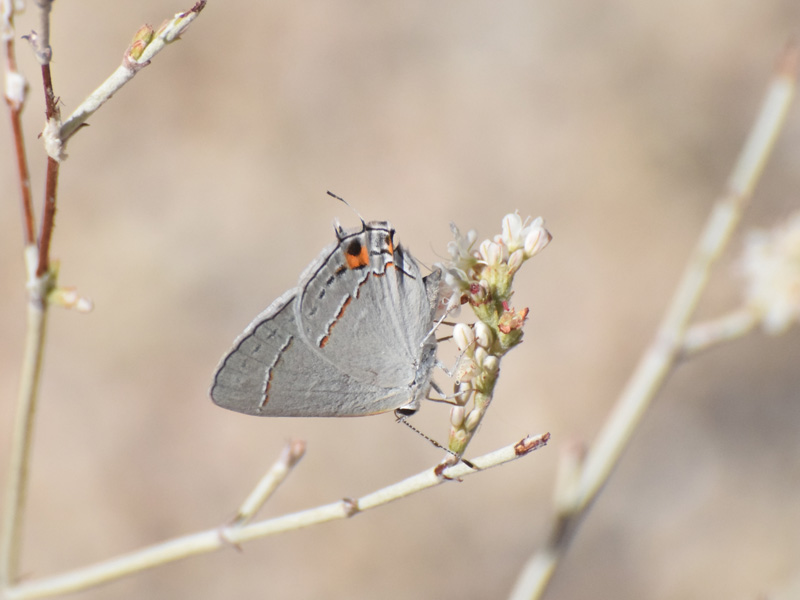
Gray Hairstreak by Scott Sprague
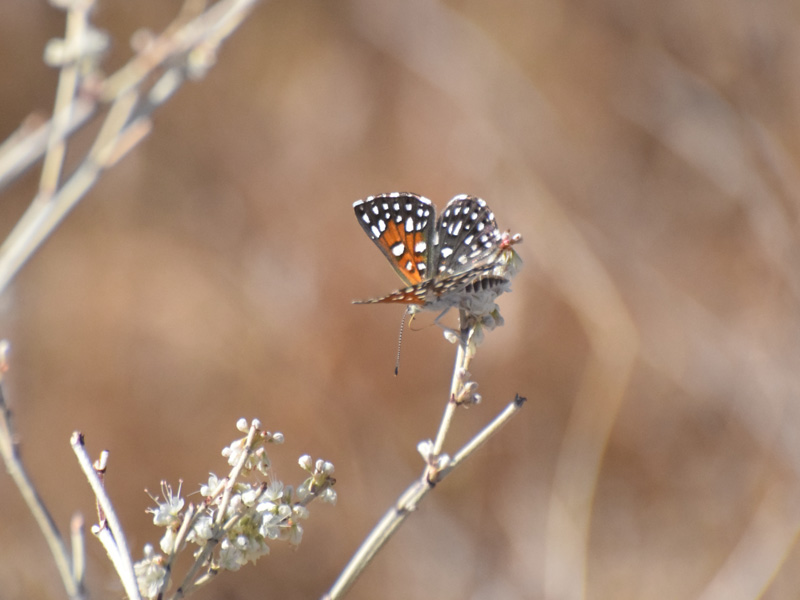
Mormon Metalmark by Scott Sprague
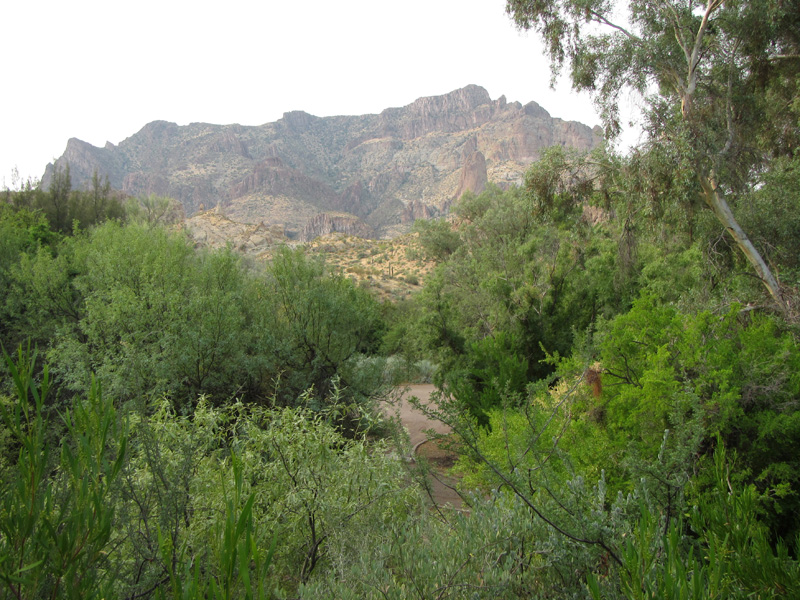
Picketpost Mountain by Liz Makings
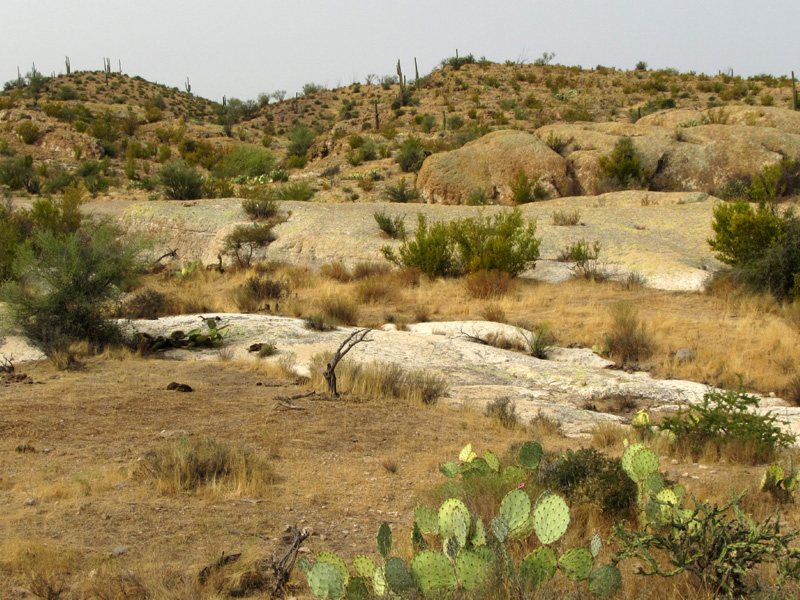
Picketpost Trail by Liz Makings
